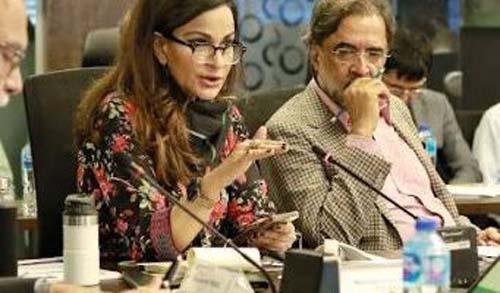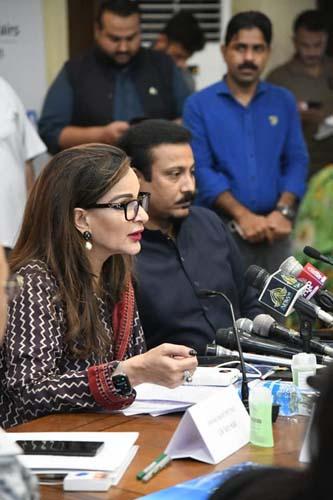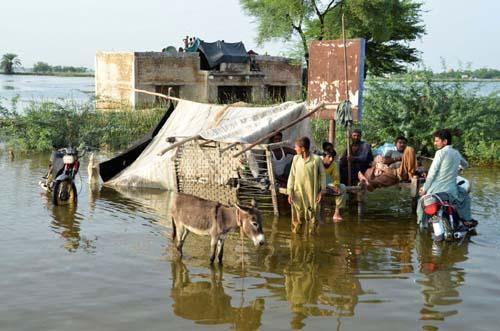
Lurking health crisis amid stagnant floodwater major challenge: Sherry Rehman
Staff Writer
Islamabad: Federal Minister for Climate Change Senator Sherry Rehman said this week that almost half of the country was submerged under floodwater that had stagnated in many places lurking the risk of waterborne disease and a health crisis which was major challenge to be managed by the government.

Addressing a news conference, flanked by Federal Minister for Commerce Syed Naveed Qamar and Senator Shahadat Awan, she urged all political parties to show unity and solidarity for service of the nation amid the natural disaster.
Sherry said that massive flash floods had inundated various parts of 72 districts out of the total 160 as these areas were also declared calamity hit areas, adding 110 district were affected by the floods making it half of the country.
She said it was the ninth week since the onset of Monsoon downpour and the country had no precedent of such torrential rains in its living history.
“The communication systems are crippling down. I can understand how tough situation is being faced by the people without food, drinking water, and formula milk for children. 700% and 600% more rainfall are recorded as compared to the average during this monsoon season in Sindh and Balochistan respectively and no monsoon rains have been occurred before with such magnitude.”
The minister underlined that this was not monsoon rather a disaster and it was mainly due to climate change and global warming .

She pointed out that the prevalent floods had exceeded the devastation of 2010 massive floods.
“The global scientists also claim that it is environmental degradation as glaciers in Pakistan are melting at a rapid pace but our greenhouse gas emissions are below one percent,” he added.
The minister opined that the government would had to make the issue as part of its foreign policy, green diplomacy and global negotiations.
“There should be a clear discussion on the global warming hazards that are impacting our people and farmers in the South. In the North mainly Khyber Pakhtunkhwa, the River Indus used to embrace inundation but this time floodwater had accumulated in Balochistan and Punjab which is causing problems,” she added.
Sherry mentioned that the monsoon deaths had crossed the number of 1,000 whereas 33 million population was impacted and this number would increase further.

“The next stage is of health management as swarms of mosquitoes are proliferating and water borne diseases to break out in the flood-hit areas of Sindh, Balochistan, and Punjab which will add further problems for the people.”
The minister appealed the philanthropists to contribute their share in relief accounts and donate it to credible institutions and also PM Relief Fund for relief efforts.
She mentioned that the National and provincial disaster management authorities (NDMA & PDMAs) were providing reliefs but these were not enough to handle 33 million masses .
The minister added that Pakistan Navy had made its highest inland deployment in Sindh and Balochistan to spearhead rescue and relief efforts.

“Full rescue operations are underway in Balochistan and Sindh. Moreover, all the ministries have diverted all of its resources for BISP relief cash programme,” she
The minister emphasized the media persons to focus on the disastrous floods, and unprecedented rains their hazards that kept the masses abreast with the damages and avoid giving more time to political issues.
Responding to a query, she said, “No country like US can serve thirty million people in a week. Disaster risk mapping is necessary and the government has asked the NDMA to hold disaster risk mapping which is our first priority after rescue and relief efforts.”
